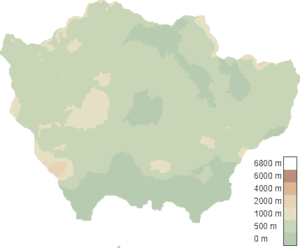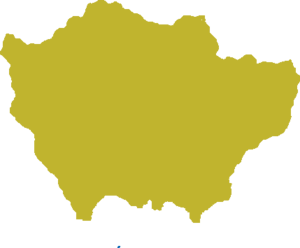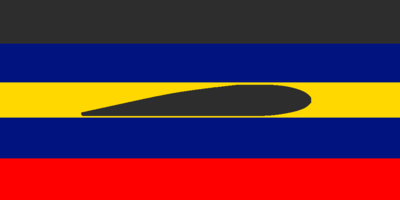Hermia: Difference between revisions
(Education has been added,) |
(→Education: indonesia???? 🤨🤨🤨) |
||
| Line 66: | Line 66: | ||
Hermish is a mixed language most closely related to the Dorvic root and very similar to Venmous but with signifigant Centresian and Forsetti influences. Hermia's Culture is known to be varied, much down to this same effect.[[File:Hermia_Culture.png|thumb]] |
Hermish is a mixed language most closely related to the Dorvic root and very similar to Venmous but with signifigant Centresian and Forsetti influences. Hermia's Culture is known to be varied, much down to this same effect.[[File:Hermia_Culture.png|thumb]] |
||
===Education=== |
===Education=== |
||
| − | Education in Hermia falls under the responsibility of the Ministry of Education, Culture, Research and Technology. In |
+ | Education in Hermia falls under the responsibility of the Ministry of Education, Culture, Research and Technology. In Hermia, all citizens must undertake twelve years of compulsory education which consists of six years at elementary level and three each at middle and high school levels. |
Hermish citizens must go to school six (or five, depending on the institution) days a week from 6:30 a.m. until afternoon (usually 2 or 3 p.m.). They can choose between state-run, nonsectarian public schools supervised by the Ministry of National Education or private or semi-private religious schools supervised and financed by the Ministry of Religious Affairs. Students can choose to participate in extracurricular activities provided by the school such as sports, arts, or religious studies. |
Hermish citizens must go to school six (or five, depending on the institution) days a week from 6:30 a.m. until afternoon (usually 2 or 3 p.m.). They can choose between state-run, nonsectarian public schools supervised by the Ministry of National Education or private or semi-private religious schools supervised and financed by the Ministry of Religious Affairs. Students can choose to participate in extracurricular activities provided by the school such as sports, arts, or religious studies. |
||
Latest revision as of 23:17, 3 October 2021
|
United Republic of Hermia
Gyermia
|
|||||
|---|---|---|---|---|---|
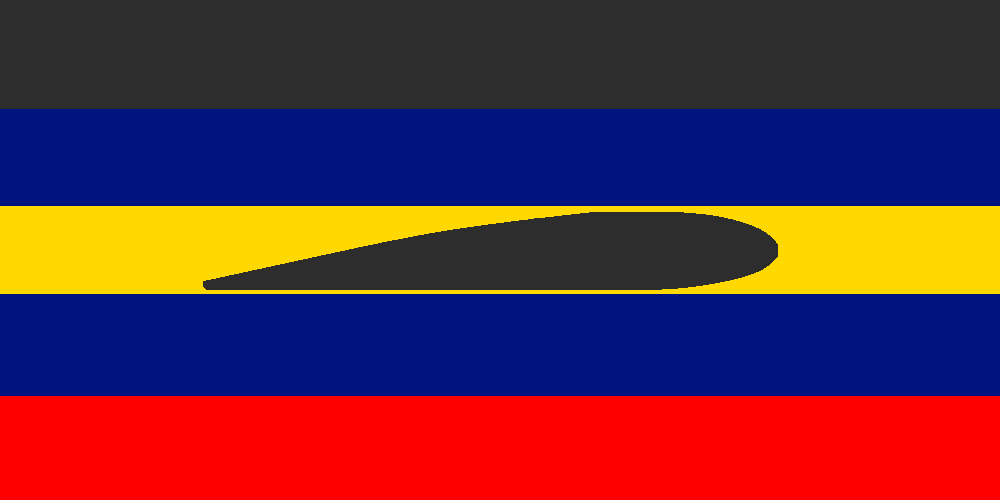 |
|||||
| Motto | "We stand United and Alone" | ||||
| Common Name | Hermia | ||||
| Anthem | "The Enemy of Tyranny" | ||||
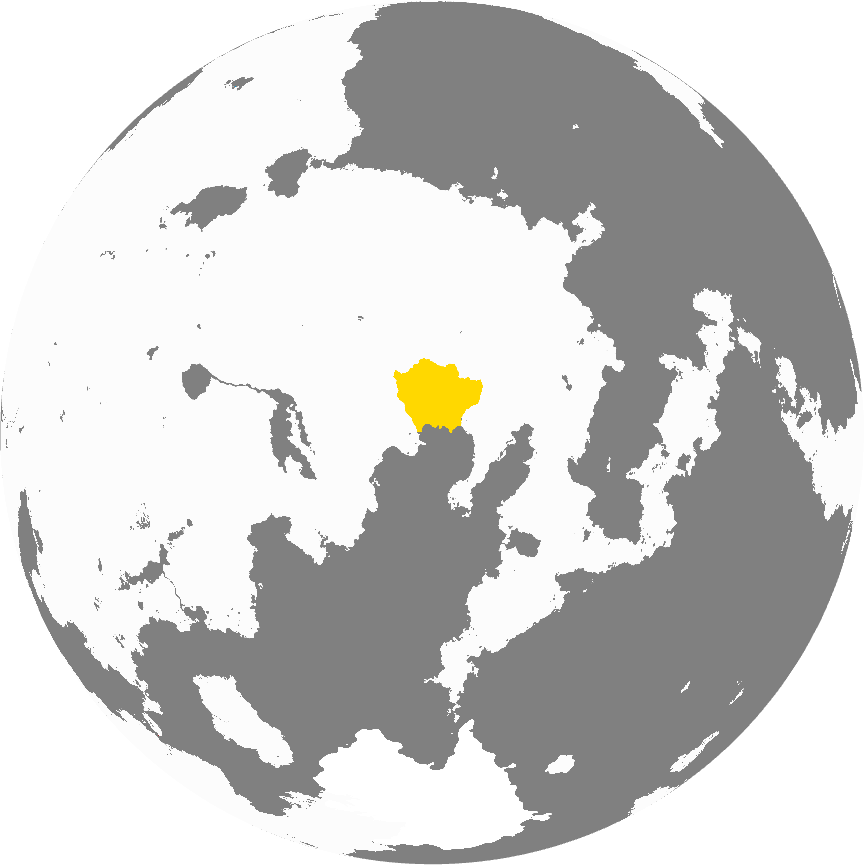 |
|||||
| Demonym | Hermish | ||||
| Official languages | Hermish | ||||
| Currency | Huriah | ||||
| Politics | |||||
| Capital | Harrisburg | ||||
| Government | Unitary Semi-Presidential Republic | ||||
| Foundation | 2072 (Current Constitution) | ||||
| Preceded by | Doren | ||||
| Followed by | Doren | ||||
| Demography | |||||
| Ethnicities | 97% Hermish 3.8% Forsetti 0.2% Other |
||||
| Population | 2,818,974 | ||||
| Area | 9,262km² km² | ||||
Etymology
###
Geography
Hermia is located in south Doren , with former Canstana bordering to the south-east, Sloven and Lanu to the north, Aquaria to the west, and former CPD territory to the northwest. Hermia is also bordered by the Greater Baskay Bay. With territory covering only roughly 9'600 km2 It is the smallest nation on Doren and 3rd smallest on Kerbin behind Union. Elevation ranges to a very minor degree as Hermia lies at the eastern-most end of the Central Doren Plain.
Climate
###
Biodiversity
###
Urban Areas
###
Politics
Government
The Hermish Goverment is a Constitutional Democratic Republic and is Divided into 3 Branch of Government
Executive Branch
The President and Vice President of Hermia is directly elected for a maximum of two seven-year terms and is the head of state, commander-in-chief of the armed forces and responsible for domestic governance and policy-making and foreign affairs. The President also appoints a cabinet, members of which do not have to be elected members of the legislature.
Legislative Branch
Established by the Constitution of the Republic of Hermia. The Legislative branch of the Republic of Hermia consist of the People's Representative Council and the Region's Representative Council, which together formed the People's Consultative Assembly.
The PRC parliamentarians re elected through multi-member electoral districts, whereas 4 RRC parliamentarians are elected in each of Hermia's Province.
The PRC holds most of the legislative power because it has the sole power to pass laws. The RRC acts as a supplementary body to the PRC, it can propose bills, offer its opinion and participate in discussions, but it has no legal power.
The Consultative Assembly itself has power outside of those given to the individual houses. It can amend the constitution, inaugurate the president and conduct impeachment procedures. When the Consultative Assembly acts in this function, it does so by simply combining the members of the two houses.
Judicial Branch
The Hermish Supreme Court is the highest level of the judicial branch. Its judges are appointed by the president. The Constitutional Court rules on constitutional and political matters, while a Judicial Commission oversees the judges.
State Auditor
The Audit Board of Hermia is the high state body that responsible to check the management and accountability of state finances conducted by the Central Government, Local Government, other State Institutions, Bank of Hermia, State- and municipally-owned enterprises, Public Service Boards, and institutions or other entities that manage state finances.
Subdivisions
Hermia is divided into two administrative zones; east and west.
Foreign Relations
Hermia has poor relations with the Dorvic Republic of Sloven that frequently threatens to spill over into open conflict, however this is yet to occur.
Demographics
Languages
Hermish people speak Hermish which is the only Official and National Language of Hermia. Though considered as not its own language as many due to its hybridized foundations.
Hermish is a mixed language most closely related to the Dorvic root and very similar to Venmous but with signifigant Centresian and Forsetti influences. Hermia's Culture is known to be varied, much down to this same effect.
Education
Education in Hermia falls under the responsibility of the Ministry of Education, Culture, Research and Technology. In Hermia, all citizens must undertake twelve years of compulsory education which consists of six years at elementary level and three each at middle and high school levels.
Hermish citizens must go to school six (or five, depending on the institution) days a week from 6:30 a.m. until afternoon (usually 2 or 3 p.m.). They can choose between state-run, nonsectarian public schools supervised by the Ministry of National Education or private or semi-private religious schools supervised and financed by the Ministry of Religious Affairs. Students can choose to participate in extracurricular activities provided by the school such as sports, arts, or religious studies.
Children ages 6–12 attend primary school. Students spend six years in primary school, though some schools offer an accelerated learning program in which students who perform well can complete the level in five years.
Three years of junior high school follows elementary school. Some schools offer an accelerated learning program in which students who perform well can complete the level in two years. There are academic and vocational junior high schools that lead to senior-level diplomas. There are also "domestic science" junior high schools for girls.[
Religion
###
Age
###
Military
The Hermish military is acknowledged as average sized while occasionally adoptive of unconventional tactics and technologies. The military's strongest branches are the Army and Air Force while Space and Navy are largely neglected.
Air Corp
Hermia's National Air Force is a force of primarily multi role light aircraft.
Army
Hermia's National Army or HNA is the most developed and funded part of the HNAF. With 35% of the budget goes to funding the Army. HNA fields 3rd Generation of the new MK2 tanks also known as DH-2 Sprinter.
###
Orbcom
###
Economy
Taxation
###
Transport
###
Energy and Infrastructure
###
Trade
###
Science
Space Program (Hermia Space Agency)
The Hermish Space Program is moderately sized despite a lack of funding. The Space Program is Independent of military spending allocations, though recent incidents have grounded the majority of progress within the area.
Astronomical Science
Hermia Astronomical Union (HAN) is Currently the largest Astronomy Group in Hermia with around 2'300 Scientist and Astronomer from around Hermia. It has 4 Main Observatories, the most famous one being the Rasolt Star and Planet Observatory near the Aquarian Border
History
###
Notable Events
- Sarconian-Hermian War (2075)
- Feliskia-Avalon War
